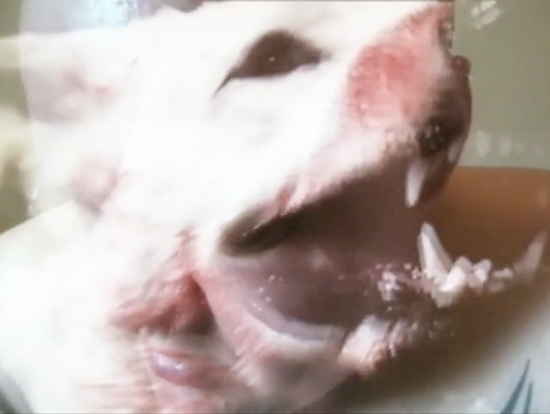There’s a class division in literary nostalgia. On the one hand a vein of blue-blooded memoir from the Victorian period onwards has waxed lyrical about rugby fields, carefree larks and lemonade on a fresh-cut lawn. On the other, writers from Robert Roberts to Roddy Doyle have mined a grittier autobiographical seam – one of embattled conditions and tough love, where working class childhood is about the task of survival rather than scones for tea. In his collection The Myth of Brilliant Summers, Mark E. Smith biographer Austin Collings takes a deft jackhammer to the rosy-spectacled memoir, providing an alternative history of youth as desperation and boredom, as queasy trepidation and moribund longing. Told in short poetic vignettes that conjure up semi-fictional glimpses of the author’s late twentieth-century boyhood – “All the characters and places herein were once real” he teases – with more contemporary stories, and splashed with moody black and white photography, this is a collection that’s content to employ atmosphere and suggestion rather than conventional narrative in creating its world.
“Look closely at our biro blue, melancholy mornings,” the author instructs us at the book’s outset, and it’s precisely this activity – looking closely – that Collings invites the reader to do. His style is that of the literary miniaturist, conjuring up still-lifes in words, a landscape portrait of a desperate edgelands, a Northern somewhere-or-other simmering with “the threat of the unseen; the uncertainty of subways; unfathomable solitude.” This is no gruff but gold-hearted North. It’s a paranoid, damaged world, a world where kids might disappear, to haunt you for years afterwards in missing posters; where girls crowd for the chance to be despoiled by a predatory older man, and fingerless uncles bask in their former glories; where faded hard-livers in wheelchairs go fishing in the canal at night.
Bit by bit the reader is eased – uneasily – into a cigarette-stained Britain replete with Saville-like geezers hooking girls with promises of pocket money and friendship, with scrappy kids hanging around with unexamined rage, where the biggest killer is not crime but boredom. It’s the ache of the small-town nowhere – away from the lights and the action, where the characters are unconscious storytellers, “dreaming out loud, confidently fibbing, believing every single word”. So there’s the young wannabe writer signing on as a temp, or the uncle comparing himself to Scarface. There’s the ageing men still lost in their wild youths, or the schizophrenic convinced American jazz magazines will recognise his genius.
This is no low-rent daydreaming: there’s a kind of artistry in all the self-deception, a tragicomic grandeur in these elaborate fictions. But although religious motifs recur in this savagely secular world – the pairings of father and son, the shafts of light that steal upon both people and places – there’s little in the way of actual light relief here. Such might be a criticism were it not for the richness of the language. Lucid and muscular, The Myth of Brilliant Summers might be better judged less as traditional short stories than as a collection of narrative prose-poems – glimpses, jumbled moments, to be read “on the bus or in the pub” as the author suggests in his foreword. In this light it’s Collings’ descriptive powers that really brings the book alive, throwing up starbursts on almost every page (“creased skin, like well-done bacon”; “yellowy eyes on the verge of curdled milk”). This is language to get lost in, like the secretive trees around the estates, with characters often merging metaphorically with the landscape they inhabit (“His uneven teeth, like war-torn buildings”). The surroundings infuse all the stories with a hidden menace, a sense of the appalling barely glimpsed or just out of frame, like the bodies cracking the concrete in The Cement Garden.
But there’s touches of humour too. The Job Centre match which results in “Abattoir Assistant” will bring a grim smile to many a partly-employed reader’s face. The work bears touches of the gravedigger surrealism of flash fictioneer David Gaffney (a man murders a dog in daylight with his bare hands in one disquieting chapter) while a sexual encounter between two teens in the grass – soundtracked by the vroom of nearby cars – is racked with touching modern pathos, a crisp-packet Ballard. At the same time there are some telling observations about the emotional mechanics of the insulated family, like the son confronted with the aftermath of his parent’s argument (“He had a way of making me feel guilty for what he’d done”). There are also insights into the darker corners of the (male) youthful psyche, picking on the kids in the remedial block, in a school that’s a hothouse for ugly spirits, all cooped up with nowhere to go. “Friends are not for escape,” the unnamed narrator tells us. “They are for conspiracy.”
While the writing is undeniably powerful, some may feel the tension between literary experimentalism and traditional narrative problematic. One or two of the shorter chapters (some just a few lines long) might have arguably better fitted in a conventional poetry collection; elsewhere, Collings occasionally dots his otherwise supple prose with rather stilted italics. The claustrophobia of the setting can also occasionally risk limiting the scope of the stories. Women are more often glimpsed than featured, as objects of teenage desire, a murderee’s photo in a newspaper, while the steadfastly dismal tone – the mouldy bathrooms and unswept kitchens, the littered estates and broken souls – can occasionally feel a little relentless.
But then The Myth of Brilliant Summers drips with a drizzly Northern existentialism that gains its pathos because of such relentlessness. It’s one that finds echoes in the music of John Cooper Clarke and early Morrissey, one of draughty libraries and rain-sodden skies where every today is “a déjà vu of yesterday”. Curiously for a work about time’s passage the battered, not-quite-suburban landscape conjured up here feels resolutely timeless: a place of stasis, where nobody really grows up, nobody really escapes, and old memories just pile up like used beercans.
This is literature as urban exploration, a furtive sidle into the edgelands, and while the approach might not satisfy those desiring a more conventional kind of short story, it’s perfectly suited for capturing the texture of memory. Collings has a way of picking out moments that have an unexplained resonance, an inner awfulness: an afternoon in a friend’s bedroom pretending to like their music, dirty magazines gifted as sweaty hand-me-downs, bored evenings pissing around that lead to making your way “home separately, alone, through the deserts of certain suburbs”. It’s those inexplicably charged moments – oddly vivid after all this time – that tend to stay with us, however much we might prefer to recall the grand events in our lives. They’re our grubby Proustian glimpses. Our barely-examined Rosebuds.
But then this isn’t exactly a memoir, and its mission is not just to acknowledge the mundane but rather to mine it, excavate it, find its hidden notes of horror and melancholy. It’s to put an ear to the wall and listen to the “predatory back-story that haunts the landscape”, the scream of silence dying in an unnamed cul-de-sac, the howl of a neighbour’s dog. We’re made to watch a screaming match on the street, pigs being slaughtered; we see an ear severed and then forgotten about over a pint. This is literature as witness statement, testimony-on-oath to life’s damages. Ignore the foreword – don’t read it on the bus. Read it at home, under your covers by night like a reborn teenager. Read it to some period atmospherica, early Factory or Nightmares on Wax, compulsively flicking over the pages, implicated in a crime you can’t quite comprehend. The Myth of Brilliant Summers will take you to places you don’t always want to go. But then, somehow, you may have the uncomfortable feeling that you’ve already been there.
The Myth of Brilliant Summers is forthcoming from Pariah Press



